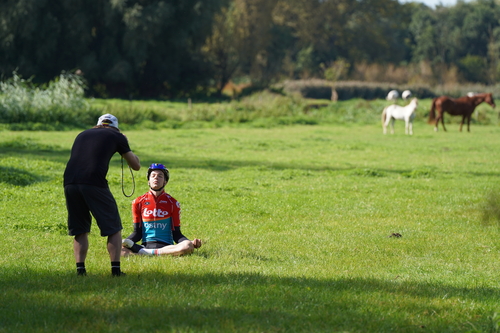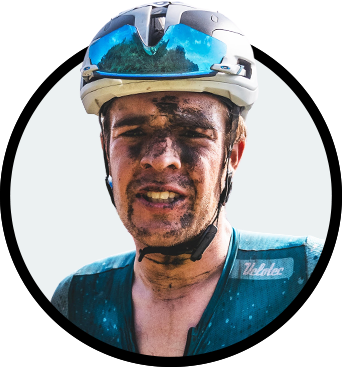What is the secret to a pro athlete’s success? A certain number of training hours? A ‘silver bullet’ training session? Aerodynamics?!
Everyone always asks me for my training hacks and pro secrets. It sounds cliché to say, but there really are no secrets. Training as an endurance athlete is relatively simple. You spend hours exercising, fuel for the work, recover, and repeat.
And there it is - recovery. That’s the worst kept secret for success.
You hear all the time, but actually being able to recover properly is the biggest tool professional athletes have that the rest of us don’t. Their job is to train and rest. It really is that simple. For a time-crunched amateur athlete who's juggling workouts between a 40-hour-plus work week and family life, it’s no surprise that something will give out eventually.
I’ve noticed it myself. 2023 was the first time in my career that I didn’t have the backing of a pro cycling team and I set out to race as a one-man band. While it was fun and liberating on so many levels, there were also major impacts on my recovery.
When you’re racing for a pro-team, a lot of your time on races is spent being bored. You arrive a few days in advance, do the odd short activation ride and proceed to spend the rest of your day lying on a hotel bed.
The very best pro athletes are world-class at doing nothing.

In my new role as a privateer, where I need to do every job for myself, my performance definitely took a dive. Now, I’m not saying that no longer having a pro mechanic to clean my bike is the reason that I’m not performing at my best. It’s more nuanced than that. Instead of relaxing into a race, I have to look after every aspect of my preparation and that has had an effect as the season went on.
I’ve considered what I learned from my time in the pro peloton and shared the three areas that I'll be focusing on during my solo career…
Recovery days
The goal of a recovery day is to recover. Easy enough, right? With that said, how many people do you know that go for a ‘recovery café ride’ and end up sprinting for town signs? Or, maybe lace up their trainers for a ‘quick’ 5km?
Of course, there's value to 'active recovery', which could involve going for a long walk, a super easy jog or a relaxed bike ride.
Personally, I split my recovery days in two. I’ll take half the day completely off, and the other half I’ll ride so painfully easy that it’s boring.
If I do ride on recovery days, it’s the equivalent of going for a walk on the bike. The heart rate should never be too high.
Fuel for tomorrow
It’s essential to get your nutrition macros right. Getting them wrong won’t just lead to you recovering poorly, but it will also negatively effect future training sessions.
The first thing I do when I walk in the door after a session is have a smoothie, which will have a healthy mix of both carbohydrates and protein. Here is an example of what I had after yesterday’s endurance ride:
- 30g Oats
- 35g Whey Protein
- 75g Frozen Berries
- 15g Honey
- 110g Banana
- 150ml Whole Milk
When you’re recovering from today’s session, you’re also fueling for tomorrow’s. If you’re an endurance athlete, it’s likely that you’ll need A LOT of carbohydrate to function properly and be truly fueled up. And that’s not a bad thing!
With fueling, I’ll often hear of athletes that don’t eat after their intervals or the final hour of the session. I can’t stress enough how badly that is for performance.
Compression boots
It’s worth saying to start that though the physiological research is largely promising, research on performance metrics is lacking. In other words, studies show that you’ll likely feel better, but it’s harder to find research to confirm that you’ll perform better.
Compression boots used to be reserved for medical use, but they have gone mainstream, at a pretty price of course. Many athletes like to use them after a session as they give you an “air massage” of sorts. The theory behind compression boots is that compression increases blood flow to your legs, which helps circulate the waste, so your body can get rid of it faster.
The jury is still out on the actual performance benefits of these, but overall if you think it helps, then who am I to stop you?
Whether you're trying to get enough sleep, learning to fuel correctly or trying out one of the latest gizmos in sport science, it’s important to remember one thing - KISS: Keep It Simple Stupid.
Recovering from exercise is far from rocket science. An athlete’s best friend is plenty of shut-eye and good nutrition. Start by getting those two things righ to build a solid foundation. Then, anything else that you're able to do can simply be an added bonus.
